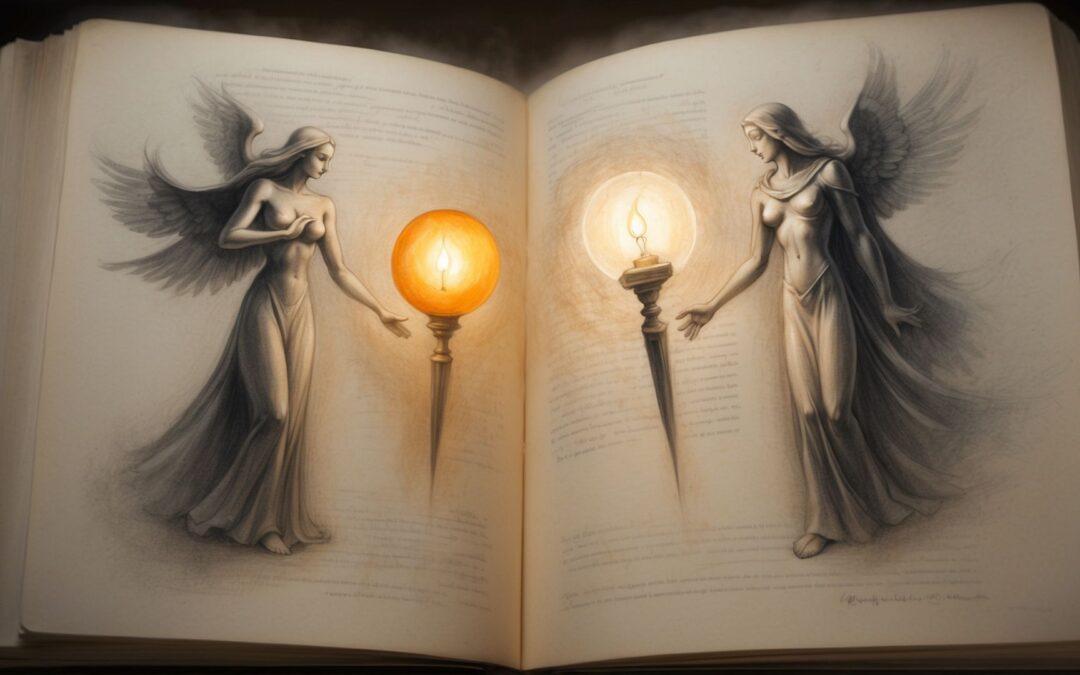Introduction
Step into the world of William Shakespeare through our Sonicscape audio series. Delve into the life and works of the greatest playwright and poet in English literature. Uncover the mysteries of his early years in Stratford-upon-Avon, follow his rise in the London theatre scene, and explore the fascinating themes and characters of his timeless plays. From the Globe Theatre to the sonnets, we unravel the genius of the Bard and his enduring legacy. Join us on this captivating journey as we bring Shakespeare’s world to life through immersive storytelling and insightful discussions.
Audio Mini-Series Contents
Episode 1: “A Birth in Stratford-upon-Avon”
Dive into the story of William Shakespeare’s early life in Stratford-upon-Avon. Explore his birth, upbringing, and education, shedding light on the environment that potentially shaped the future Bard.
Episode 2: “The Lost Years”
Unravel the mystery of Shakespeare’s “lost years” between leaving school and emerging on the London theatre scene. Delve into theories about what he might have been doing during this enigmatic period.
Episode 3: “Stage Lights of London”
Trace Shakespeare’s rise in the London theatre scene, from his early days as an actor to his emergence as a playwright. Discover the influential people he encountered during this period and their impact on his career.
Episode 4: “Master of the Stage”
Focus on Shakespeare’s most famous plays and their initial performances. Explore the reactions of his contemporaries and the societal context in which these works were created, highlighting their enduring significance.
Episode 5: “Shakespeare’s Sonnets: The Language of Love”
Delve into the world of Shakespeare’s sonnets, examining their structure, themes, and potential biographical elements. Explore the intriguing figures of the “Dark Lady” and the “Fair Youth” within these poetic masterpieces.
Episode 6: “Dark Comedies and Tragic Tales”
Uncover the shift in Shakespeare’s works from comedic to tragic, delving into key plays such as “Hamlet,” “Macbeth,” and “King Lear.” Explore why these tragedies continue to resonate with audiences through their profound themes.
Episode 7: “Shakespeare’s Sphere: The Globe Theatre”
Discover the significance of the Globe Theatre in Shakespeare’s career. Explore its construction, destruction, and the ways in which it influenced the presentation of his works, leaving an indelible mark on the theatrical world.
Episode 8: “The Bard’s Brush with Royalty”
Explore Shakespeare’s relationship with royalty, specifically Queen Elizabeth I and King James I, and how their patronage shaped his works. Uncover the intersection of Shakespeare’s artistry with the royal court.
Episode 9: “Final Acts and Retirement”
Unveil Shakespeare’s final plays, his retirement to Stratford-upon-Avon, and the creation of his will. Delve into the legacy he left behind in his hometown and the impact he made on the literary world.
Episode 10: “The Bard’s Enduring Legacy”
Examine the continuing influence of Shakespeare’s works on literature, language, and culture. Explore why he remains relevant and how his works have been adapted and interpreted in modern times, leaving an indelible mark on the world of art and storytelling.
Unveiling Shakespeare's Life and Works
Transcripts
Episode 0: Series Introduction
Hello and welcome, you’re listening to English Plus Sonicscape Series. I’m your host Ella, and I am thrilled to take you on a journey, a journey through time and artistry, to a world of verse and vibrant imagination. This, my friends, is the world of the immortal Bard, William Shakespeare.
You might wonder, why Shakespeare? Why choose to focus on this 16th-century English playwright? The answer is simple, yet profound. Shakespeare, even after four centuries, continues to influence not only literature and theatre, but also our everyday language, our cultural consciousness, and our understanding of human nature.
Over the course of ten episodes, we will walk through his life, his works, and his legacy. We will stroll along the streets of Stratford-upon-Avon, where he was born and spent his formative years. We will traverse through his ‘lost years,’ a period shrouded in mystery and speculation.
We will experience the theatrical energy of London’s burgeoning playhouses, including the famed Globe Theatre, and delve into the language of love etched in his sonnets.
We will bear witness to the birth of timeless tragedies, from the haunted corridors of Macbeth’s castle to the stormy heath of King Lear. We will discuss his intimate brushes with royalty and how that shaped his literary creations.
And finally, we will examine the undying legacy of the Bard, to understand why his works continue to captivate us and how his insights remain relevant in today’s world.
So, ready for an adventure? The stage is set, the curtain is about to rise, and the story of William Shakespeare is waiting to unfold, right here in our Sonicscape Series.
Now, this particular Sonicscape journey is a special one. It’s part of our premium content available exclusively to our valued English Plus patrons on Patreon. So, why wait? Subscribe now and join us on this incredible journey.
So, until our paths cross in the streets of Stratford-upon-Avon, this is Ella, your host and fellow traveler, signing off. Let the Bard be with you.
Episode 1: A Birth in Stratford-upon-Avon
Welcome, English Plus patrons, to the first episode of our journey through the life and times of William Shakespeare, as part of the Sonicscape Series. Today, we travel back to the late 16th century, to a quaint town in England named Stratford-upon-Avon.
A baby was born in this town, a child who would grow up to become the most celebrated playwright and poet in the English language. His name was William Shakespeare.
What was life like in this small English town? Stratford-upon-Avon was a market town bustling with trade and business. The influence of this setting on young William’s future works is undeniable. Themes of commerce, negotiation, and trade abound in his plays.
His parents, John and Mary, were not scholars, but they understood the value of education. John Shakespeare was a glover and an alderman, while Mary Arden hailed from a family of wealthy landowners. Their standing in society could afford young William an education, and indeed, he attended the King’s New School, a local grammar school. Here, he was schooled in the classics, learned Latin, and read the works of ancient writers, all of which would serve as inspiration for his future works.
Our journey has just begun, and as we delve deeper into the Bard’s life, we will see how these formative years in Stratford-upon-Avon shaped not just Shakespeare, the man, but also Shakespeare, the playwright and poet, who still enchants us with his tales of love, tragedy, comedy, and history.
So, stay tuned for the next episode as we navigate through the intriguing period of Shakespeare’s “Lost Years”. But until then, I’m Ella, signing off from our Sonicscape Series. Stay curious, stay excited, and let’s continue to explore the world of Shakespeare together.
Episode 2: The Lost Years
Welcome back to our Sonicscape Series on William Shakespeare. I’m your host, Ella, and today we’re delving into one of the most enigmatic chapters of the Bard’s life, commonly referred to as “The Lost Years”.
After Shakespeare’s schooling in Stratford-upon-Avon, history loses sight of him. The term “The Lost Years” refers to a period of Shakespeare’s life, from 1585 to 1592, where historical records provide little to no information about his activities.
There are a myriad of theories about how the young Bard spent these years. Some speculate he might have been honing his skills as a schoolmaster in the country, while others imagine him as a traveling actor with a troupe of players. Some even suggest he might have been a soldier or sailor. The range of theories is a testament to the enigma that is Shakespeare’s life.
The truth? We may never know exactly what happened during these years. But the mystery only adds to the allure. What we do know is that during these formative years, Shakespeare would have encountered a rich array of experiences, from the mundane to the extraordinary, which could have influenced his work.
By 1592, Shakespeare emerged in London, already making a name for himself. His Lost Years were over, but his rise in the theater world was just beginning. So, join me next time as we journey to the bustling streets of London, where a young William Shakespeare makes his mark on the theatre scene.
Remember, English Plus patrons, history might be written by the victors, but it’s the mysteries that keep us intrigued. I’m Ella, signing off from our Sonicscape journey into the life of the Bard. Stay curious, and stay tuned.
Episode 3: Stage Lights of London
Welcome back, English Plus patrons, to our Sonicscape journey through the life of William Shakespeare. I’m Ella, your guide on this adventure, and today, we’re leaving behind the mystery of the Bard’s “Lost Years” and stepping onto the lively and competitive stage of Elizabethan London.
From the moment Shakespeare set foot in London, he was swept up in the vibrant world of theatre, a world that was just beginning to boom. Here, amidst the spectacle of the stage, he started as an actor, performing minor roles. His acting days were more than just a stepping stone, they served as an essential education in stagecraft and theatrical writing.
But Shakespeare was not content with just acting. The call of the quill was too strong. His initial works, such as “Henry VI” and “Titus Andronicus”, started to circulate in the theatre scene. Shakespeare was transitioning from actor to playwright, and his star was on the rise.
During these transformative years, Shakespeare crossed paths with a host of influential figures. There were his fellow playwrights, like Christopher Marlowe, whose tragic narratives might have inspired Shakespeare’s later works. There were the Burbage brothers, leading actors of the time, who were part of Shakespeare’s acting company, The Lord Chamberlain’s Men.
And then there were the patrons, the wealthy and influential individuals who commissioned works from artists. Patrons played a pivotal role in an artist’s success, and Shakespeare was no exception. His patrons ranged from private citizens to members of the royal court, all providing him not only financial support but also connections and influence.
As we delve deeper into our journey, we’ll see how these connections, experiences, and Shakespeare’s unique genius turned a humble actor from Stratford-upon-Avon into one of the greatest playwrights of all time. So, stay with me, as our next episode takes us into the world of Shakespeare’s early plays and the theater that housed them, the iconic Globe Theatre.
But for now, I’m Ella, signing off from our Sonicscape journey into the life of William Shakespeare. Keep imagining, keep exploring, and let’s continue this journey together.
Episode 4: Master of the Stage
Hello, English Plus patrons! Welcome back to our Sonicscape journey through the life and works of William Shakespeare. I’m Ella, your guide on this incredible adventure. Today, we’re turning the spotlight on some of Shakespeare’s most famous plays, immersing ourselves in their first performances, and delving into the reactions they incited in their time.
By the late 1590s, Shakespeare had established himself as a force to be reckoned with in the London theatre scene. From the delightful chaos of “A Midsummer Night’s Dream” to the star-crossed tragedy of “Romeo and Juliet,” Shakespeare’s plays were leaving indelible marks on audiences and fellow playwrights alike.
Picture the first performance of “Romeo and Juliet.” The audience, spellbound by the lyrical language and gripped by the unfolding tragedy, would have experienced a rollercoaster of emotions. The tale of these doomed lovers struck a chord, illuminating the destructive consequences of feuding and prejudice.
The societal context in which these plays were created and performed had a significant influence. England was a place of change, conflict, and discovery. The country was establishing itself as a global power, and yet it was riddled with internal conflicts, from religious strife to social inequality. Shakespeare skillfully mirrored these societal tensions in his works, making his plays not only entertaining but also relevant and thought-provoking.
Shakespeare’s contemporaries’ reactions ranged from admiration to jealousy. Some, like the playwright Ella Jonson, recognized his genius, albeit grudgingly, and praised his “honey-tongued” verse. Others, like Robert Greene, dismissed him as an “upstart crow,” an outsider trying to fit into the world of educated playwrights.
Regardless of the mixed reactions, Shakespeare continued to create. He was a master of the stage, conjuring worlds with his words, crafting characters with depth and complexity, and compelling audiences to think, laugh, and weep. So, stay with me, English Plus patrons, as our journey takes us deeper into the genius of the Bard in our next episode, where we’ll focus on his exquisite sonnets.
But until then, this is Ella, your fellow Shakespeare enthusiast, signing off from the Sonicscape journey into the world of the Bard. Keep questioning, keep exploring, and remember, “All the world’s a stage.”
Episode 5: Shakespeare's Sonnets
Welcome back, English Plus patrons, to our continuing Sonicscape journey into the world of William Shakespeare. I’m Ella, your guide and fellow bardolater, and today, we’re stepping away from the playhouse and entering the realm of sonnets.
Shakespeare’s sonnets, a collection of 154 fourteen-line poems, are just as significant as his plays. They are often considered the epitome of the sonnet form and are lauded for their profound themes, intricate structure, and stunning emotional depth.
Each sonnet follows a specific structure: three quatrains, or four-line sections, and a final couplet. This structure allowed Shakespeare to introduce a theme or problem in the quatrains and provide a resolution or turn in the final couplet.
The sonnets delve into themes of love, beauty, time, and mortality. They also provide potential glimpses into Shakespeare’s own life, though it is essential to caution that identifying the voice of the sonnets with Shakespeare himself is speculative and controversial.
Now, let’s talk about the mysterious figures at the heart of many sonnets: the “Fair Youth” and the “Dark Lady”. These two characters are central to the narrative arc of the sonnets, although their real-life identities remain a mystery.
The “Fair Youth” is the addressee of the early sonnets. These poems express an intense, sometimes romantic, affection for a young man of great beauty and virtue. The “Dark Lady” appears in the later sonnets and is depicted as an irresistible but morally ambiguous woman, who both attracts and repels the poet.
These sonnets have sparked endless debates among scholars and readers alike. Are they autobiographical, providing hidden insights into Shakespeare’s personal life? Or are they purely fictional, a testament to Shakespeare’s skill in creating compelling narratives and characters? We may never know for sure.
But what we do know is this: whether exploring the depth of his feelings for the Fair Youth or expressing his vexed attraction to the Dark Lady, Shakespeare’s sonnets reveal a keen understanding of human emotions and relationships.
Join me in the next episode as we explore the shift in his works from comedy to tragedy, and how these darker narratives became his most enduring and influential works. But for now, I’m Ella, signing off from our Sonicscape journey into the life and works of the Bard. Keep wondering, keep exploring, and let’s continue to appreciate the beauty of words together.
Episode 6: Dark Comedies and Tragic Tales
Welcome back, dear English Plus patrons, to another captivating episode of our Sonicscape journey through the world of William Shakespeare. I’m Ella, and today we explore a significant turning point in Shakespeare’s career—the shift from light-hearted comedies to profound tragedies.
Shakespeare’s comedies, filled with mistaken identities, witty banter, and romantic entanglements, delighted audiences. But as time passed, his pen took a darker turn, crafting tragedies that continue to resonate deeply with us today.
One of these tragedies, “Hamlet,” explores the complexities of human existence and the tormented psyche of its protagonist. Hamlet’s contemplation of life, death, and the nature of revenge speaks to universal themes of identity, morality, and the existential struggles we all face.
Then there is “Macbeth,” a chilling exploration of ambition, guilt, and the corrupting nature of power. This play delves into the human capacity for evil and the devastating consequences of unchecked ambition, offering a cautionary tale that reverberates through the ages.
And who can forget the heartbreaking tale of “King Lear”? This tragedy explores themes of family, betrayal, and madness, examining the frailty of human relationships and the tragic consequences of pride and folly.
These tragedies still resonate with audiences today because they explore fundamental aspects of the human condition. They expose the fragility of our lives, the complexity of our emotions, and the consequences of our choices. Through Shakespeare’s profound insight into human nature, he holds a mirror to our own existence, inviting us to reflect on our own triumphs, failures, and inner struggles.
As we delve further into Shakespeare’s tragedies, we will witness the depths of his storytelling and the enduring power of his characters. So, stay tuned for the next episode as we unravel the mysteries of the tragic tales that have captivated audiences for centuries.
Until then, dear patrons, I’m Ella, bidding you farewell from our Sonicscape journey into the world of Shakespeare. Keep exploring, keep reflecting, and let the Bard’s words continue to illuminate your path.
Episode 7: Shakespeare's Sphere
Welcome back, English Plus patrons, to our Sonicscape exploration of William Shakespeare’s life and works. I’m Ella, and today we’re venturing into the heart of Shakespeare’s theatrical world—the iconic Globe Theatre.
The Globe Theatre holds immense significance in Shakespeare’s career. It was not only the primary venue for the performance of his plays but also a symbol of the flourishing Elizabethan theater scene.
First, let’s journey back to 1599 when the original Globe Theatre was constructed on the banks of the River Thames in London. It was a marvel of its time—a three-story, open-air theater with a thatched roof, accommodating up to 3,000 spectators.
Shakespeare’s plays found their true home at the Globe. The design of the theater itself influenced the presentation of his works. The thrust stage, thrusting out into the audience, allowed for intimate interactions between the actors and the crowd, enhancing the immersive experience.
The Globe was an inclusive space, attracting people from all walks of life. Whether it was a nobleman or a groundling—a lower-class theatergoer standing in the yard—they could all come together to experience the magic of Shakespeare’s plays.
But as with any story, there were moments of tragedy. In 1613, during a performance of Shakespeare’s own play “Henry VIII,” a cannon misfired, setting the thatched roof ablaze. The Globe Theatre burned to the ground, leaving behind only memories and ashes.
However, from the ashes, the Globe was reborn. In 1614, a new Globe Theatre, aptly named the Second Globe, was built on the same site. It continued to be a hub of theatrical activity until its closure in 1642 due to the Puritanical government’s ban on stage plays.
The significance of the Globe Theatre in Shakespeare’s career cannot be overstated. It provided him with a platform to showcase his plays, to interact with his audiences, and to shape the very essence of his theatrical vision.
Today, a reconstruction of the Globe Theatre stands proudly on the banks of the Thames, offering modern audiences a glimpse into the world in which Shakespeare’s works were brought to life.
Join me in our next episode as we explore Shakespeare’s intriguing connections with royalty and how their patronage impacted his artistry. Until then, I’m Ella, bidding you farewell from our Sonicscape journey into the world of the Bard. Keep imagining, keep appreciating the magic of theater, and let’s continue our adventure together.
Episode 8: The Bard's Brush with Royalty
Hello, dear English Plus patrons! Welcome back to our Sonicscape journey into the life and works of William Shakespeare. I’m Ella, your host and guide, and today, we explore Shakespeare’s fascinating relationship with royalty.
Shakespeare’s path crossed with two monarchs who held significant influence over his career—the illustrious Queen Elizabeth I and her successor, King James I.
During Queen Elizabeth’s reign, Shakespeare’s plays were performed before the royal court. His company, The Lord Chamberlain’s Men, later renamed The King’s Men, received the queen’s patronage, a testament to the quality of his works. Shakespeare’s plays, filled with political intrigue, histories, and the complexities of power, resonated with the queen’s own interests and the concerns of her reign.
After Queen Elizabeth’s death, King James I ascended to the throne. Shakespeare’s company became the official theatrical troupe of the king, solidifying their status and securing their place in the royal court.
Under King James’ patronage, Shakespeare’s creativity flourished. He was commissioned to write plays specifically for royal events, such as “Macbeth,” believed to have been written in honor of King James’ Scottish heritage.
This connection with royalty not only provided financial stability but also allowed Shakespeare to explore themes and characters with a royal backdrop. His works, such as “Hamlet” and “Richard III,” delved into the complexities of leadership, the fragility of power, and the consequences of unchecked ambition.
Shakespeare’s interactions with the royal court and his understanding of their expectations undoubtedly influenced the portrayal of monarchs and noble figures in his plays. His characters like Henry V, Cleopatra, and Juliet reflect a deep understanding of the aspirations, challenges, and human complexities of those in positions of power.
The patronage of Queen Elizabeth and King James not only shaped Shakespeare’s works but also solidified his reputation as a premier playwright of the era. Their support allowed him to flourish and contribute to the cultural and artistic legacy of England.
As we continue our journey, we’ll uncover more about the world of Shakespeare’s works and the impact of his artistry. Join me in the next episode as we explore his final plays, his retirement to Stratford, and the legacy he left behind.
Until then, dear patrons, I’m Ella, bidding you farewell from our Sonicscape journey into the world of the Bard. Keep appreciating the power of patronage, keep exploring the connections between art and royalty, and let’s continue this extraordinary adventure together.
Episode 9: Final Acts and Retirement
Welcome back, English Plus patrons, to another episode of our Sonicscape journey through the life and works of William Shakespeare. I’m Ella, your guide and fellow admirer of the Bard, and today, we explore the final acts of Shakespeare’s remarkable career and his retirement to his hometown of Stratford-upon-Avon.
In the latter years of his life, Shakespeare continued to write, creating some of his most poignant and reflective works. Plays such as “The Tempest,” “Cymbeline,” and “The Winter’s Tale” showcase his mature artistic vision and explore themes of forgiveness, reconciliation, and the cyclical nature of life.
While these plays marked the end of his theatrical career, they were by no means the end of Shakespeare’s story. In 1613, he returned to Stratford-upon-Avon, where he had spent his formative years. There, he enjoyed the comforts of family, friends, and the familiar surroundings of his birthplace.
In the quietude of Stratford, Shakespeare pursued a variety of interests. He invested in real estate, becoming a prominent landowner in the area. He also established himself as a respected figure in the community, involving himself in local affairs and holding positions of civic responsibility.
In 1616, at the age of 52, Shakespeare penned his last will and testament. This document provides us with valuable insights into his personal life and the relationships he cherished. It reveals his affection for his wife, Anne Hathaway, his daughters, Susanna and Judith, and his grandchild, Elizabeth.
Upon his death on April 23, 1616, Shakespeare left a rich and enduring legacy. His plays, poems, and sonnets have captivated audiences for over four centuries. They have been translated into numerous languages, performed in theaters worldwide, and studied in classrooms across the globe.
Stratford-upon-Avon, too, became forever linked to the legacy of its most famous son. Today, tourists flock to the town, visiting Shakespeare’s birthplace, his grave at Holy Trinity Church, and the Royal Shakespeare Theatre, paying homage to the man whose words continue to resonate with people of all ages and cultures.
As our Sonicscape journey draws to a close, let us reflect on the lasting impact of William Shakespeare. His genius lies not only in the beauty of his language or the depth of his characters but in his ability to capture the essence of the human experience—its triumphs, tragedies, joys, and sorrows.
Join me in our final episode as we explore the enduring legacy of the Bard and the ways in which his works have been adapted and interpreted in modern times.
Until then, dear patrons, I’m Ella, bidding you farewell from our Sonicscape journey into the world of William Shakespeare. Keep celebrating his legacy, keep appreciating the power of his words, and let’s conclude this extraordinary adventure together.
Episode 10: The Bard's Enduring Legacy
Welcome back, dear English Plus patrons, to the final episode of our Sonicscape journey through the life and works of William Shakespeare. I’m Ella, your guide and fellow admirer of the Bard, and today, we explore the enduring legacy of this remarkable playwright and poet.
Shakespeare’s impact on literature, language, and culture is immeasurable. Even after four centuries, his works continue to be studied, performed, and cherished worldwide. But what makes Shakespeare so relevant, so timeless?
At the heart of his enduring legacy lies the universality of his themes and characters. Whether it’s the complexities of love, the pursuit of power, or the depths of human nature, Shakespeare’s plays resonate with us because they delve into the fundamental aspects of the human condition.
His language, too, is a testament to his genius. Shakespeare’s unparalleled command of words and his ability to craft beautiful, evocative, and memorable phrases have enriched the English language. Expressions like “to be or not to be,” “all the world’s a stage,” and “fair play” have become ingrained in our cultural lexicon, transcending time and place.
Moreover, Shakespeare’s works have not remained static. They have been adapted and reimagined in countless ways, keeping them relevant and accessible to new generations. From stage productions to film adaptations, his plays have been brought to life in diverse settings and through different artistic lenses.
Modern interpretations have explored gender, race, and class dynamics, shedding new light on the themes and characters within his works. These adaptations allow us to view Shakespeare’s stories through fresh perspectives, making them more inclusive and reflective of our contemporary society.
Furthermore, Shakespeare’s influence extends far beyond the world of theater. His works have inspired countless writers, poets, and artists across genres. From Jane Austen to James Joyce, from Tchaikovsky to Akira Kurosawa, creators have drawn inspiration from Shakespeare’s storytelling, his characters, and his mastery of language.
In the realm of education, Shakespeare’s plays continue to be a staple of literature curricula, offering students insights into the complexities of human nature, the power of language, and the beauty of storytelling. The enduring presence of Shakespeare in classrooms ensures that his legacy lives on, nurturing the minds of future generations.
As we conclude our Sonicscape journey, let us reflect on the extraordinary legacy of William Shakespeare. His works have the power to transport us, to ignite our imagination, and to remind us of our shared humanity.
I extend my heartfelt gratitude to you, dear patrons, for joining me on this remarkable adventure. Remember, the world of Shakespeare is vast and ever-evolving. Keep exploring, keep discovering, and let the Bard’s enduring legacy continue to illuminate your path.
This is Ella, signing off from our Sonicscape journey into the world of William Shakespeare. Farewell, and may the spirit of the Bard forever guide you.












0 Comments